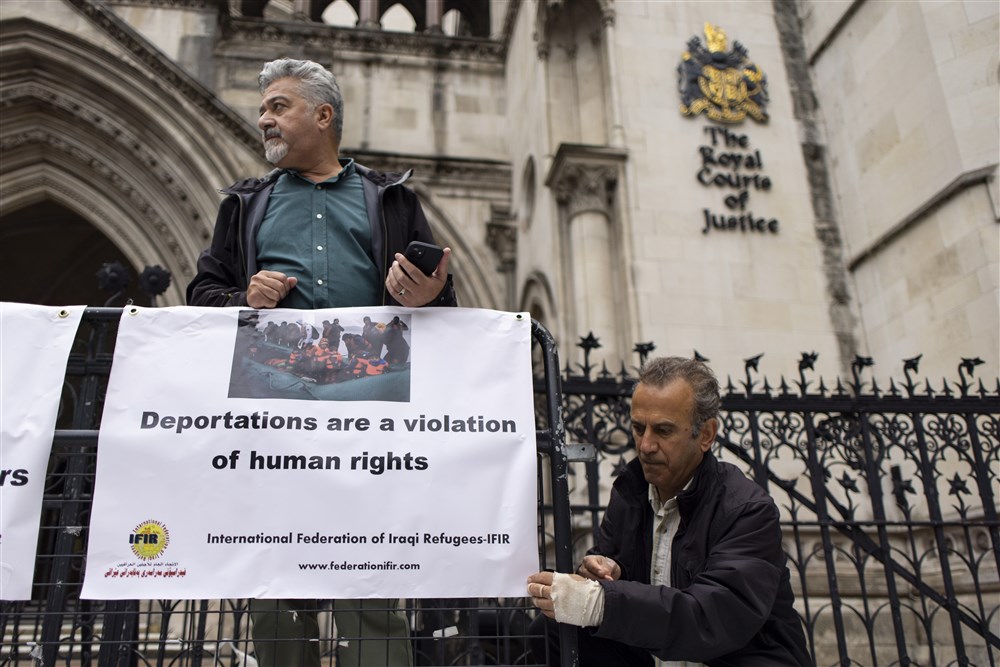Former Brexit Party leader Nigel Farage said a British bank that abruptly closed his account did so because his views “do not align with our values”. The claims have prompted the UK Government to say it will “crack down” on such practices.
Farage obtained documents from the UK lender Coutts that seem to show it took offence at political comments he made.
“I believe Coutts targeted me on personal and political grounds, for its report reads rather like a pre-trial brief drawn up by the prosecution in a case against a career criminal,” he said.
“Monthly press checks were made on me. My social media accounts were monitored. Anything considered ‘problematic’ was recorded. I was being watched,” Farage claimed.
A spokesman for the UK Treasury said in a report in The Telegraph: “It would be of serious concern if financial services were being denied to anyone exercising their right to lawful free speech.
“We will soon set out plans to crack down on this practice by toughening the rules around account closures, protecting freedom of expression. In the meantime, people can complain to the Financial Ombudsman Service, which has the power to direct a bank to reopen an account.”
Initially, it was reported that Coutts had claimed the former politician’s bank account had been closed because he failed to meet its wealth threshold that requires clients to have at least £1 million in investments or borrowing – including a mortgage – or £3 million in savings.
It seems that was not the case.
In the Coutts document, the bank apparently admits that Farage’s accounts were not closed on the basis of his wealth as his “economic contribution” was “sufficient to retain on a commercial basis”.
Instead, it seems it based the decision on his comments regarding Brexit, his links to former US President Donald Trump, his opposition to “net zero” emissions targets, his criticism of King Charles III and even his friendship with tennis star Novak Djokovic.
Farage, now a broadcaster, alleged that, according to the 36-page dossier by the lender’s “wealth reputational risk committee”, the bank was not being truthful about why his account was discontinued. He called the document a “Stasi-style surveillance report used to justify the bank’s extraordinary action”.
I now have evidence Coutts LIED to me..
In an explosive 40 page memo, “Brexit” is mentioned 86 times, “Russia” 144 & “PEP” 10.
Support for Trump + views on immigration, net zero & the vaccine are listed as reasons to exit me.
They say my account is commercially viable! pic.twitter.com/QjPCuUetu3— Nigel Farage (@Nigel_Farage) July 18, 2023
The dossier noted that “there is no evidence of regulator or legal censure of the client”, that he was unfailingly polite to staff and that he had recently been downgraded from a “higher risk politically exposed person [PEP]” to “lower risk” and was on the way to being classed as “no risk at all”.
The bank even referred to the retweeting of a joke by UK comic Ricky Gervais. “What do these things have to do with my bank account?” Farage demanded.
The dossier, he said, mentions “Brexit” 86 times and “Russia” 144 times, even though the bank found no evidence of any links Farage had with Russia. Coutts also said the former arch-Brexiteer was regarded as “racist and xenophobic” and had made remarks that were “distasteful and appear increasingly out of touch with wider society”.
The most commonly cited UK news sources in its remarks about Farage are The Independent (13 articles) and the pro-EU Guardian (seven articles), with other references including the anti-racism group Hope Not Hate and the pro-UK Labour Party websites Left Foot Forward and Labour Movement For Europe.
Because Farage does “not support the diversity, policies and ‘purpose’ of Coutts”, the lender said he “doesn’t align to their values”. It added: “This was not a political decision, but one centred around inclusivity and purpose,” based specifically on the banks’ stance on environmental, social and corporate governance (ESG) and “diversity”.
Farage questioned what the bank meant by the word “purpose” and pointed out that the UK Government is the lender’s largest shareholder.
“Sadly, Coutts is not alone in its quest to purge anybody deemed ‘unacceptable’. I have been refused an account by 10 other banks. There is now little or no prospect that I will have a UK bank account again,” he said.
Farage added that he was “extremely angry” at the treatment he received from Coutts and that he would consult his lawyers to “decide what action is appropriate”.
At the start of July, the BBC and the Financial Times stated that his account was closed due to not meeting the bank’s required financial threshold. The BBC cited sources it said were “familiar with” the decision made by Coutts. Observers have wondered whether both media outlets might also be contacted by Farage’s lawyers.
Will @BBCSimonJack and @BBCNews be apologising for their reporting on this story?
His mealy-mouthed tweet of the generic Coutts statement overnight is not enough.
The BBC must correct their original story about me. I will be making a complaint. pic.twitter.com/g8mrgRgnCK
— Nigel Farage (@Nigel_Farage) July 19, 2023
A Coutts spokesman said: “Our ability to respond is restricted by our obligations of client confidentiality. Decisions to close accounts are not taken lightly and take into account a number of factors including commercial viability, reputational considerations and legal and regulatory requirements.”





